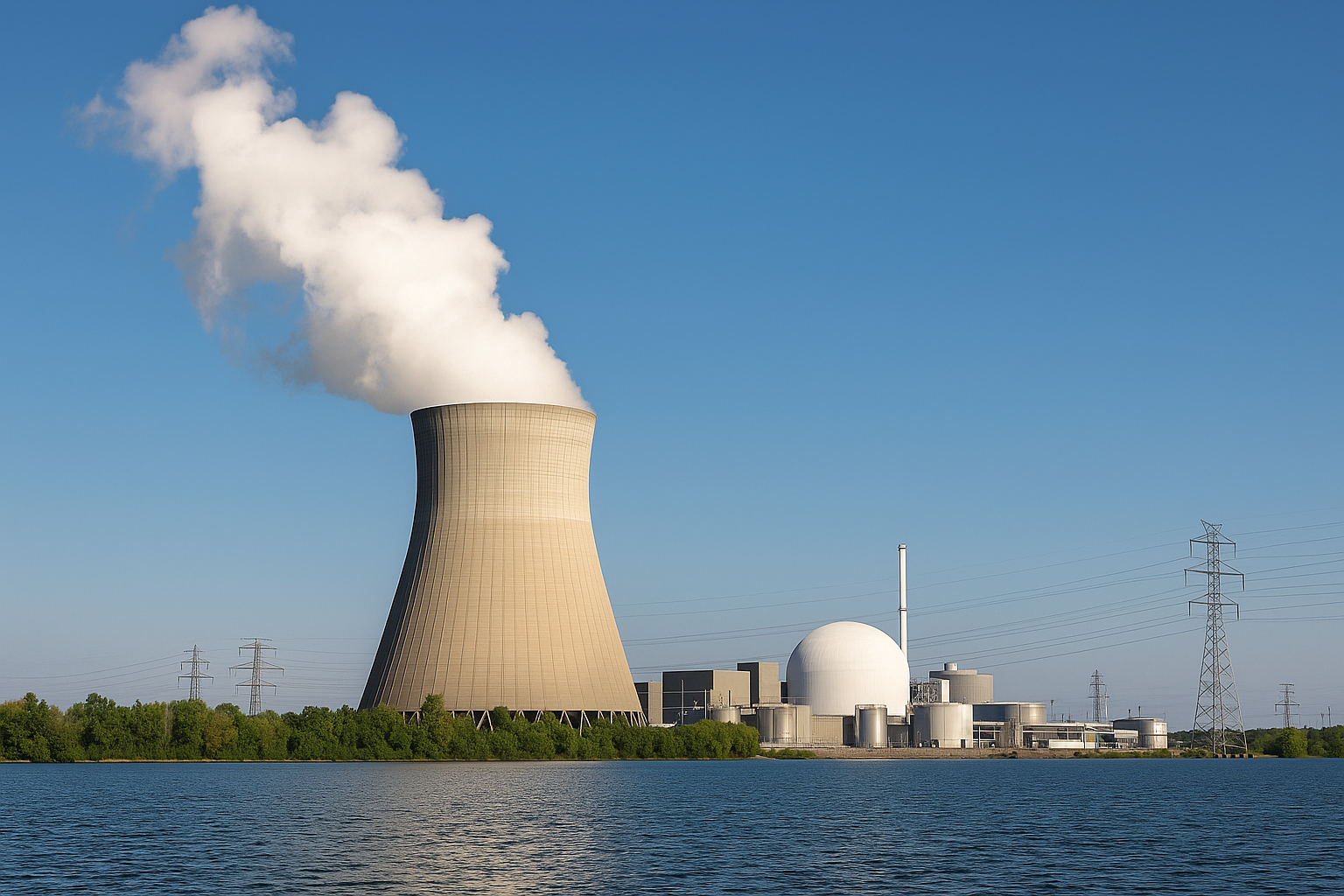The Nuclear Renaissance: Why Big Tech Is Banking on Fission
The relationship between technology and energy is complex, but what it boils down to is this: every byte has an energy cost. And with trillions of bytes, you need serious power sources," remarked Jesse Jenkins, Princeton energy systems researcher, at a recent industry conference.
The Power Paradox Behind Data's Expansion
Meta's recent landmark agreement with Constellation Energy to purchase electricity from a nuclear plant in Maryland represents more than just another corporate power purchase. It signals a profound shift in how the tech industry approaches its ravenous energy needs while attempting to reconcile its climate commitments. The agreement will provide Meta with 720 megawatts of carbon-free electricity—enough to power roughly half a million homes—and marks one of the most significant corporate investments in nuclear energy to date.
This isn't merely a procurement decision; it's a strategic recalibration that could reshape the relationship between Big Tech and energy infrastructure for decades to come. As artificial intelligence workloads explode and data centers multiply across landscapes, the contradiction at technology's heart becomes increasingly difficult to ignore: digital innovation requires physical power, and lots of it.
Beyond Green Marketing: The Hard Realities of Tech's Energy Footprint
For years, tech companies have made ambitious climate pledges while quietly grappling with the inconvenient truth that their energy consumption is skyrocketing. The computational demands of AI training alone have increased 300,000-fold in the past decade, according to the AI Index Report. Wind and solar, despite their impressive growth, face fundamental challenges of intermittency and land use that make them insufficient for tech's baseload power requirements.
When we talk about running large language models or training the next generation of machine learning systems, we're talking about energy consumption that grows exponentially," explains Dr. Sarah Miller, energy economist at Stanford University. "The math simply doesn't work without stable, dense energy sources.
Nuclear power offers what other renewables currently cannot: reliable, carbon-free electricity with a tiny physical footprint. A single nuclear plant can generate as much electricity as wind farms covering hundreds of square miles, operating constantly regardless of weather conditions.
Startups Riding the Nuclear Wave
While Meta's deal makes headlines, a new generation of nuclear startups is quietly reimagining the technology itself. Companies like NuScale, Oklo, and Kairos Power are developing small modular reactors that promise to overcome traditional nuclear's cost and deployment challenges through standardized manufacturing and inherently safer designs.Bill Gates-backed TerraPower is building its first Natrium reactor in Wyoming, while Canadian firm General Fusion advances plasma-based approaches to nuclear fusion, the holy grail of clean energy. These ventures are attracting serious capital—over $3.4 billion in private investment flowed into nuclear startups in 2022 alone, according to PitchBook data."We're witnessing the convergence of two innovation cultures," notes venture capitalist Anousheh Ansari, who has invested in several energy startups. "Silicon Valley's speed and iteration philosophy is meeting nuclear engineering's precision and safety-first approach. The potential is transformative.
The Geopolitical Chessboard
This nuclear renaissance arrives against a backdrop of intensifying technological competition between the United States and China. As AI capabilities become increasingly central to national security and economic competitiveness, access to abundant, reliable energy becomes a strategic imperative.China plans to build at least 150 new nuclear reactors in the next 15 years—more than the rest of the world has built in the past 35 years. The country has already begun constructing multiple facilities specifically designed to power AI research centers and quantum computing facilities.
Western tech companies and governments are taking notice. The nuclear-tech nexus represents not just an environmental or business consideration, but a matter of technological sovereignty and national resilience.
Ethics and Opposition in a New Nuclear Age
The embrace of nuclear energy by tech giants isn't without controversy. Environmental groups that have long celebrated tech companies' renewable commitments now find themselves in the uncomfortable position of criticizing nuclear partnerships. The schism reflects deeper divisions within the climate movement about pragmatism versus idealism in energy transitions."There's a generational shift happening among environmentalists," observes Dr. James Hansen, climate scientist and pro-nuclear advocate. "Younger activists are increasingly focused on carbon math rather than traditional anti-nuclear sentiment."
The waste question remains contentious, though advanced reactor designs promise to reduce waste volumes and potentially recycle existing stockpiles as fuel. Regulatory frameworks developed for conventional large reactors must evolve to accommodate innovative designs without compromising safety.
The Power Behind the Digital Future
Meta's nuclear agreement may prove to be an inflection point—the moment when tech giants acknowledged that their digital empires require nuclear foundations. As companies race to build increasingly sophisticated AI systems and expand virtual reality platforms, the underlying energy infrastructure becomes as strategically important as semiconductor supply chains.\n\nThe implications extend far beyond corporate boardrooms. This convergence of nuclear and digital technologies could accelerate innovation in both sectors, with nuclear benefiting from tech's software capabilities for simulation and optimization, while tech gains the reliable, carbon-free electricity it desperately needs.
The question now isn't whether more tech companies will follow Meta's lead, but rather how quickly they'll move and how deeply they'll integrate with the energy sector. In the coming decade, we may find that the most consequential technology companies aren't just software developers, but hybrid entities that both consume and produce the power that drives our digital world.
